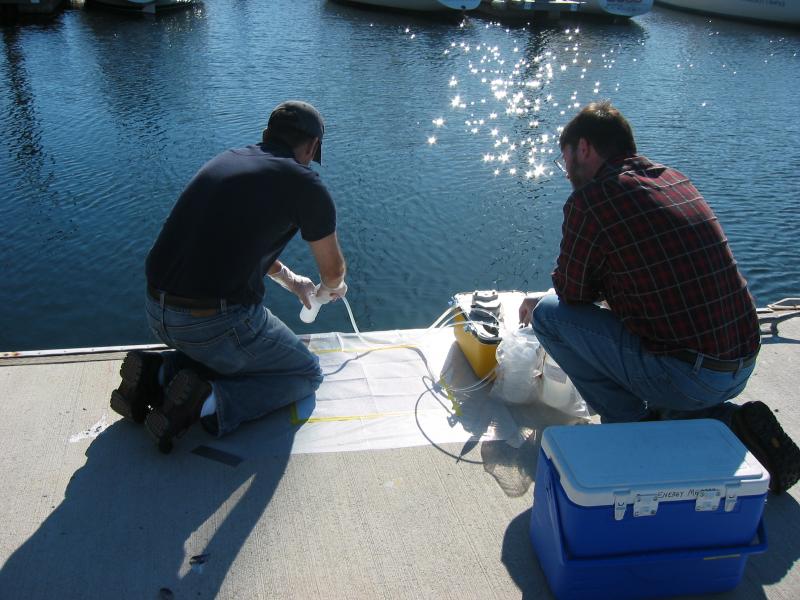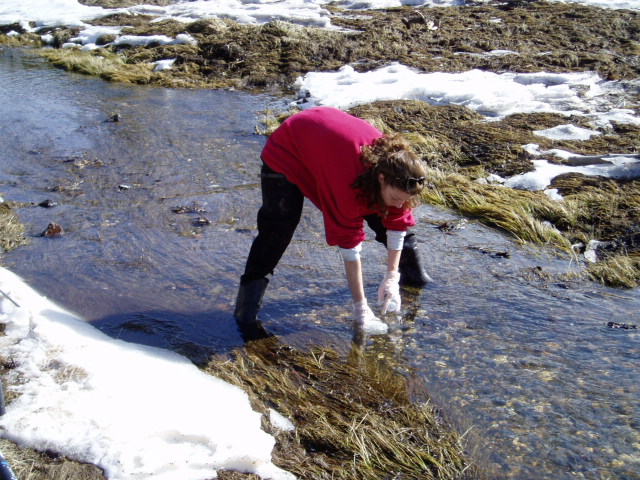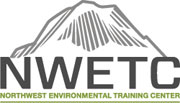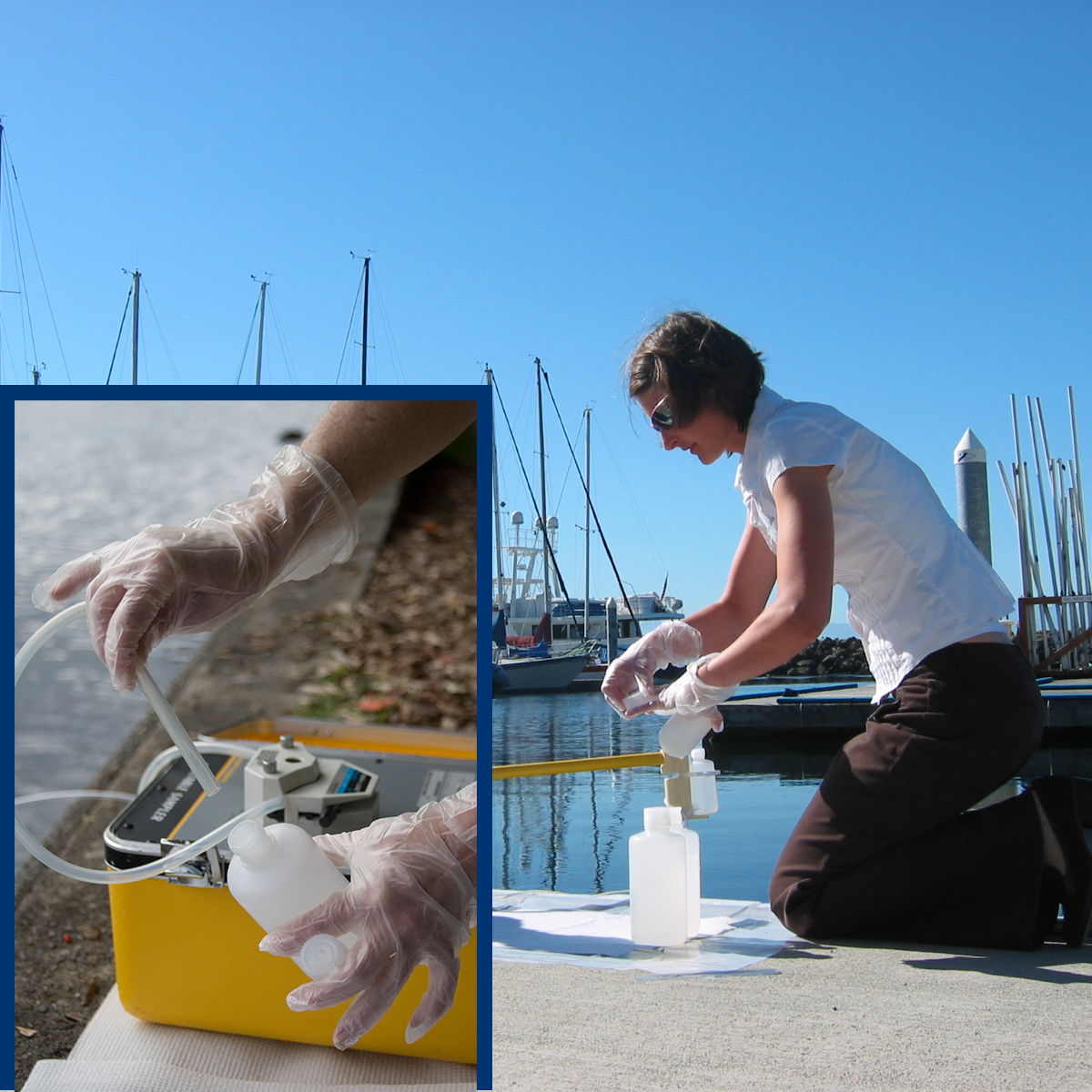|
Description: This course is designed for anyone collecting ambient water samples for the analysis of low-level total and dissolved mercury and other trace metals, as well as various metals species (including methylmercury and inorganic arsenic species). This one-day course will include a half-day in a classroom with lectures covering the circumstances in which low-level detection limits would be desired or required, EPA analytical methods that must be used, proper handling and preservation of samples, necessary sampling supplies, considerations that should be made prior to and during sampling activities in order to collect samples correctly and avoid contamination, various sampling and field-filtration techniques, and field quality assurance sample collection requirements.* The second half of the day, students will engage in hands-on field exercises, where they will be given the opportunity to practice several surface water sampling protocols using various sample collection methods and following the “Clean Hands/Dirty Hands sampling techniques. Time permitting, sample collection techniques and recommendations for additional sample matrices may be discussed that are specific to the student’s needs and area of interest. See the “Course Topics” area below for topic list. Lunch will be provided, please dress weather/outdoor appropriate for the field portion of the course. See "What to Bring" for more information.  
You may register online or by calling the Northwest Environmental Training Center at (425) 270-3274. Online registration is strongly encouraged.Please wait to receive a course confirmation email, roughly one month prior to the class, before making any travel arrangements.
Intended Audience: This course is intended for supervisors, field sampling staff, wastewater treatment facility staff, consultants, engineers and students interested in successfully sampling wastewater influents/effluents, stormwater and ambient receiving waters for mercury and metals at EPA and State discharge and water quality criteria level.
Continuing Education Units: 0.70 CEUs
Course Topics
- Why the Need for Low-Level Metals Detection? Reasons why low-level metals detection and EPA Sample Collection Method 1669 is desired and becoming required. A brief discussion regarding the Clean Water Act, Total Maximum Daily Loads, and drivers for low-level detection.
- EPA 1600 Series Methods: Various EPA Analytical Methods (1600-series) available for trace metals analysis. Instruction will also be provided for proper handling and preservation of samples prior to or immediately following laboratory receipt.
- Sampling Supplies & Equipment: The correct equipment and supplies that MUST be used in order to successfully collect a water sample for trace-level metals analysis. Surface and subsurface sampling supplies will be discussed, including equipment needed for proper field filtration.
- Considerations Before & During Sample Collection: In order to obtain credible and scientifically defensible data, considerations should be made before and during sample collection. The instructor will discuss what should be included in a sample analysis plan when collecting ambient water quality samples for low-level metals analysis. Participants will gain an understanding of different sources of contamination or interferences that can cause problems with trace metals analysis and ways to avoid contamination.
- Clean Hands/Dirty Hands Sampling Technique: EPA Method 1669 “Clean Hands/Dirty Hands” for several different sampling methods and a practical demonstration.
About the Instructor
 Prior to joining Brooks Applied Labs, Amanda Royal received her B.S. degree in Environmental Resource Management from Arizona State University and worked as an Environmental Program Specialist with the Arizona Department of Environmental Quality. She was significantly involved in managing several Total Maximum Daily Load (TMDL) studies for mercury and has more than 10 years of extensive practical field experience collecting environmental samples for trace level analyses in even the most remote locations. Ms. Royal routinely provides field teams with advice in the proper collection and handling of samples demanded of the most stringent projects. She also has formally taught clean sampling techniques over the last 8 years. In her free time, she enjoys playing with her two small children and hopes to get her kayak back in the water soon.
What to Bring
Please bring a pen or pencil, and notepad if you would like to take notes (you may also choose to take notes in your book). Lunch will be provided. Please be aware that the field/sampling portion of the course will entail walking through park grounds, and being around/near water. Please dress appropriately for the outdoor/field portion of the course (closed-toe shoes, etc.)
Billing Information
In order to guarantee a space in a course, the tuition must be paid in full TWO WEEKS before the first day of the course by either check or credit card. State and government agencies paying with a purchase order are allowed payment under the two-week time frame if a copy of the purchase order is received by NWETC.
If You Need to Cancel
Cancellations*-
With 31 or more days notice, we will offer a 100% refund or credit towards a future course. The credit is good for one year and may be applied to any course.
- With 30-8 days notice, we will offer a course credit towards a future course. The credit is good for one year and may be applied to any course.
- With fewer than 8 days notice, there is no course credit available
*Please note that attendee replacement is welcome at any time
Disability Accommodations
Disability Accommodations:To request disability accommodations, please contact us at info@nwetc.org or 425-270-3274 at least 30 days prior to the event.
|










